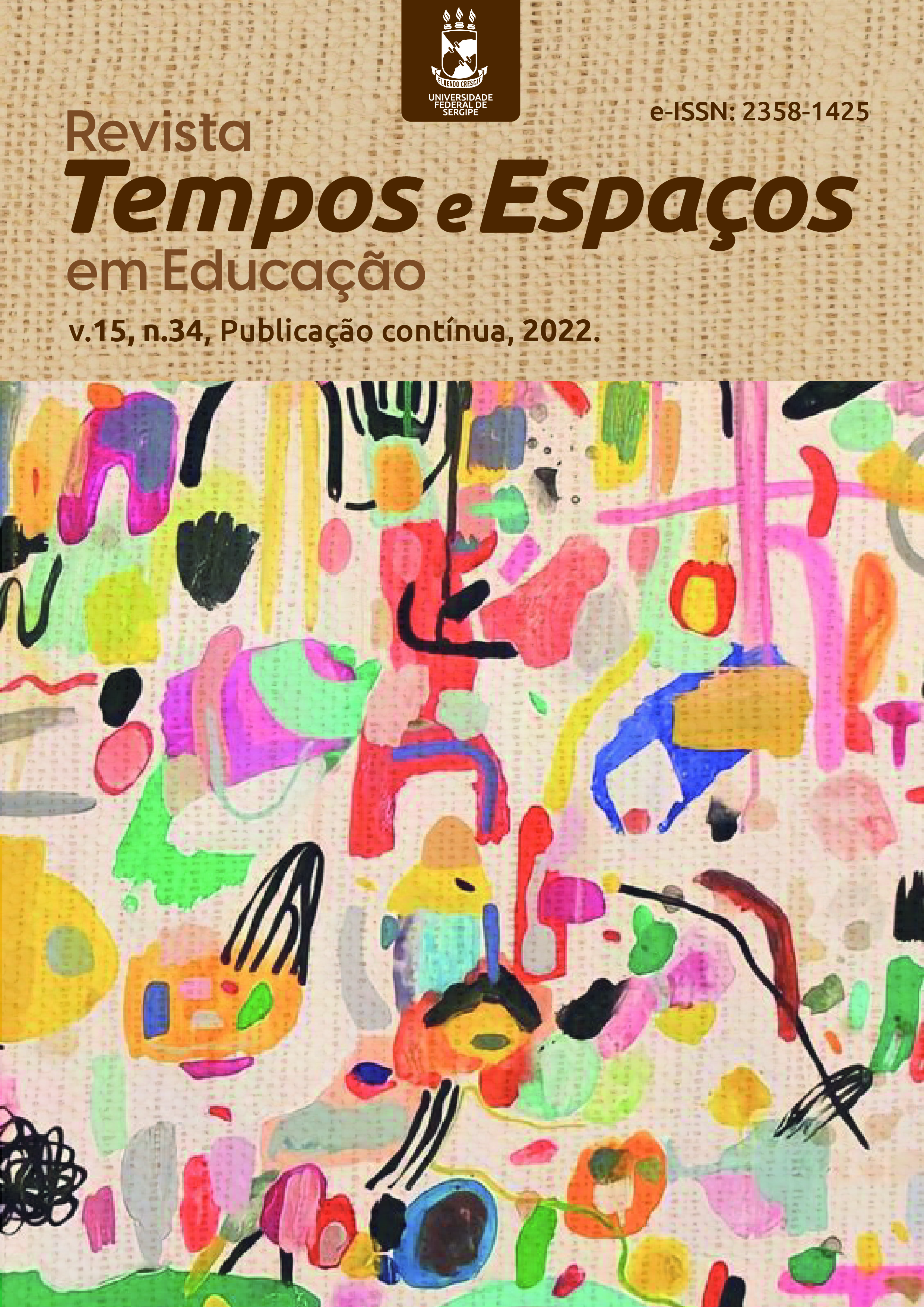Formação da cultura jurídica dos estudantes universitários
DOI:
https://doi.org/10.20952/revtee.v15i34.17761Palavras-chave:
Сultura jurídica, Estudantes universitários, Formação profissional, Abordagens, Componentes, Funções, Modelo pedagógico, Princípios, ExperiênciaResumo
Pode-se definir a cultura jurídica dos estudantes como um sistema espiritual e material da vida jurídica dos estudantes, que assegura a utilização eficaz de documentos legislativos e outros documentos regulamentares em actividades profissionais para resolver problemas profissionais. A cultura jurídica dos estudantes na sua formação profissional é uma unidade de componentes gnoseológicos, axiológicos, de actividade e tecnológicos, que podem ser considerados como critérios da formação desta cultura. Os componentes estruturais seleccionados da cultura jurídica da formação profissional do estudante são refractados em componentes funcionais. As funções mais importantes são cognitivo-transformativas, legal-reguladoras, valor-normativas, comunicativas, prognósticas, de socialização legal, e humanísticas. O modelo pedagógico da formação da cultura jurídica dos estudantes, representado pelos componentes de destino, conteúdo estrutural, organizacional-procedural e de avaliação-controlo, que revela a essência teórica, estrutura interna e lógica do complexo processo em consideração, a unidade de todos os seus elementos inter-relacionados e interdependentes, permite criar um espaço educativo jurídico e proporciona o processo de formação da cultura jurídica nas condições da educação profissional e pedagógica. Os princípios básicos revelados da formação da cultura jurídica dos estudantes na formação profissional são consistência, conceptualidade, condicionalidade jurídica e tambem o principio baseado em prognósticos.
Downloads
Referências
Azarkin, N. V. (2000). Legal culture through the centuries. Legal newspaper, 30, 1-2.
Bekzhanova, Z.E. (2015a). Issues of communication strategies in youth discourse (based on chat material). Journal of Language and material, 6 (1), 168-173.
Bekzhanova, Z.E. (2015b). Constracting typology of youth discourse based on the analysis of authentic language sources. Journal of Language and Literature, 6(2/2), 390-395.
Bekzhanova, Z.E. & Ryssaldy, K.T. (2015). Tactics of Verbal Defense Strategy in Youth Discourse and Their Representation in Modern Talk Shows. Asian Social Science, 11 (6), 132- 143.
Bobyleva, Ya. V., Borisova, S. V. & Gritsenko, L. A. (2014). Pedagogical conditions in formation of legal culture of future teachers. Young scientist, 17, 452-454.
Freud, S. (2021). Culture, power, law. State and Law, 7, 47-6112.
Granat, N.L. & Panasyuk, V.V. (1998). Legal awareness and legal culture. Lawyer, 11/12, 2-8.
Kharnikov, M. V. (2018). The formation of legal culture of adolescents: essence and factors of influence. Bulletin of TSU, 7 (177). https://cyberleninka.ru/article/n/formirovanie-pravovoy-kultury-podrostkov-suschnost-i-faktory-vliyaniya
Kramaruk, C.B. (n.d.). Legal culture as a subject of philosophical reflection. http://www.nauka.spravkanv.ru/pravo/pr0006.htm
Kurbayeva, A., Kunayeva, G., Bugenova, L., et al. (2019). Cognitive mechanisms of Kazakhstan Commercial and Social Advertising text. Opcion, 88, 280-303.
Kuznetsov, S.A. (2013). Theoretical approaches to the design of regulatory and legal training of future specialists in the field of social tourism. Pedagogical-psychological and medical-biological problems of physical culture and sports, 3(28), 103-123.
Kuznetsov S.A. (2018). Model of normative-legal training of specialists in the sphere of social tourism. Pedagogical-psychological and medical-biological problems of physical culture and sports, 3, 157-166.
Lecture Notes in Networks and Systems (2021). Volume 315. LNNS, 329-3402022. International Conference on Comprehensible Science, ICCS 2021, Eilat.
Legal education and legal training as means and methods of the formation of the legal socialization of the individual (n.d.). http://jurkom74.ru/materialy-dlia-ucheby/pravovoe-vospitanie-i-pravovoeobuchenie-kak-sredstva-i-sposoby-formirovaniia-pravovoi-sotcializatciilichnosti
Markova S.M. (2014). Patterns of pedagogical design in the context of vocational education. Theory and practice of social development, 19, 206-208.
Nersesyants, V. S. (2016). Philosophy of law. Moscow: Legal norm.
Nikolayeva, L.N. (2005). Formation of legal culture of students: PhD thesis. Moscow.
Sinyukova, T. V. (2015). Legal culture. Theory of state and law. Saratov.
Togaybaeva, A.K. (2013). Pedagogical Conditions for Forming Legal Culture of Kazakhstan Students. World Applied Sciences Journal, 22(3), 415-419. https://doi.org/10.5829/idosi.wasj.2013.22.03.2983
Voronkov, S.V. (2013). The formation of legal culture of bachelors of pedagogical education at the university: PhD thesis. Orel.
Yermakova, Ye.I. (2007). Legal education of college students in the process of vocational education: thesis. Candidate of Pedagogical Sciences: 13.00.08. Moscow.
Downloads
Publicado
Como Citar
Edição
Seção
Licença
À Revista Tempos e Espaços em Educação ficam reservados os direitos autorais pertinentes a todos os artigos nela publicados. A Revista Tempos e Espaços em Educação utiliza a licença https://creativecommons.org/licenses/by/4.0/ (CC BY), que permite o compartilhamento do artigo com o reconhecimento da autoria.



